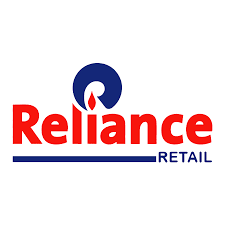Reliance Retail Disrupts Quick Commerce: A Game-Changer in Indian E-commerce
Three points you will get to know in this article:
- Reliance Retail enters quick commerce, challenging Blinkit and Swiggy Instamart.
- Ambitious expansion to 1,150 cities with 10-30 minute delivery promise.
- Fee-free strategy and wider product range to attract customers.
Reliance Retail Enters Quick Commerce

Reliance Retail, India’s retail giant, has made a bold move into the quick commerce arena, setting the stage for a fierce battle in the e-commerce sector. This strategic entry is poised to challenge established players like Blinkit, Swiggy Instamart, and BigBasket, reshaping the landscape of rapid delivery services across the nation.
Reliance's Quick Commerce Strategy Unveiled
Reliance Retail has officially launched its quick commerce services through JioMart, its e-commerce platform. The initial rollout began in select areas of Navi Mumbai and Bengaluru, offering customers the convenience of swift grocery deliveries. However, this is just the beginning of Reliance’s ambitious plans to revolutionize the quick commerce sector.
The company aims to leverage its vast network of 3,000 retail stores nationwide to fulfill orders. Starting with grocery items, Reliance has plans to expand its quick commerce offerings to include value fashion and small electronics, such as smartphones, laptops, and speakers.
Aggressive Expansion Plans Across India
Reliance’s quick commerce strategy is not limited to major metropolitan areas. The company has set its sights on a pan-India expansion, aiming to reach 1,150 cities and cover 5,000 pin codes where it already operates grocery stores. This extensive reach will give Reliance a significant advantage over competitors who primarily focus on metro areas.
The ambitious plan includes delivering most orders within an impressive 10-15 minutes, with the remaining fulfilled in under 30 minutes. To achieve this, Reliance will utilize its logistics arm, Grab, which it had previously acquired.
Unique Fulfillment Model Sets Reliance Apart
Unlike other quick commerce operators that rely on dark stores or neighborhood warehouses, Reliance is taking a different approach. The company plans to use its existing retail infrastructure for order fulfillment. This strategy, while potentially challenging in delivering within the 30-minute window in congested cities, allows Reliance to leverage its vast network of physical stores.
Customer-Centric Approach: No Fees, More Products
To attract customers and gain a competitive edge, Reliance has adopted a fee-free strategy. The company will not charge delivery fees, platform fees, or surge fees, regardless of order size. This approach starkly contrasts with competitors like Blinkit, Swiggy Instamart, and BigBasket, which often levy additional charges for deliveries.
Moreover, Reliance is positioning itself as a provider of a more extensive range of products. By linking its entire inventory to the quick commerce platform, the company aims to offer 10,000-12,000 stock keeping units (SKUs), far exceeding the typical range available on competing platforms.
Targeting Untapped Markets: Small Cities and Towns
A key part of Reliance’s strategy is focusing on smaller cities and towns where quick commerce operators have yet to make significant inroads. By targeting these untapped markets, Reliance aims to create a strong foothold and gain a competitive advantage over its rivals.
Refining the Delivery Model for Speed and Efficiency
Reliance has overhauled its JioMart delivery model to meet the demands of quick commerce. Previously, deliveries took 1-2 days, with small trucks delivering multiple orders sequentially. The new focus is on individual deliveries by bike or cycle, with each grocery store covering a 3-kilometer radius.
This refined process allows Reliance to offer deliveries within 10-30 minutes, addressing a key market demand and positioning the company as a formidable player in the quick commerce space.
The Future of Quick Commerce: A Blended Approach
Industry experts believe that Reliance might adopt a blended approach in the long run. This could involve offering quick commerce deliveries in areas close to its stores and scheduled deliveries in areas further away. This flexible strategy would allow Reliance to maximize its reach while maintaining efficiency.
Impact on the FMCG Sector and Market Share Acquisition
For fast-moving consumer goods (FMCG) companies, quick commerce is rapidly becoming a vital channel, accounting for 30-35 percent of total online sales. Reliance’s entry into this space is likely to have a significant impact on the sector.
The company’s approach of waiving transaction fees while offering higher discounts is part of its market share acquisition strategy. With its deep pockets and willingness to experiment aggressively, Reliance is well-positioned to dominate this fast-growing segment.
Reliance Retail’s entry into the quick commerce space marks a significant milestone in the Indian e-commerce landscape. By leveraging its vast retail network, adopting a customer-centric approach, and targeting untapped markets, Reliance is set to shake up the industry.
As the company expands its quick commerce services across India, consumers can expect increased competition, potentially leading to better services, wider product ranges, and more competitive pricing. The coming months will be crucial in determining how this move by Reliance reshapes the quick commerce sector and the broader e-commerce industry in India.
- Ed-Tech Giant PhysicsWallah’s IPO Opens on November 11 and has a ₹103–109 Price Range - November 6, 2025
- Bhavish Aggarwal: The Visionary Behind Ola Electric - August 31, 2025
- OLA: History of A Startup Giant - August 30, 2025




